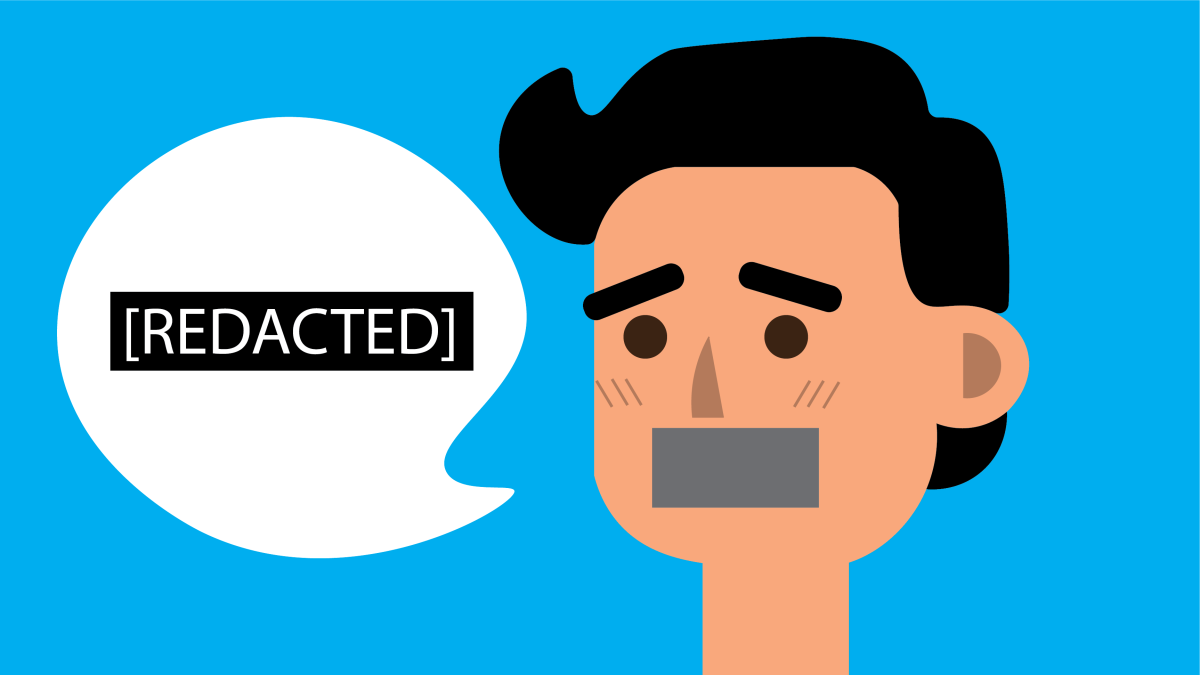Everyone self-censors. It might be a concerted decision to not spill the latest tea about Mike and Bailey making out at a Tigerland bar, or the whispering of something objectionable (“not to be racist, but…”). Maybe it’s the lowering of the voice to avoid anyone hearing a cancellable opinion on gender, immigration, or any number of issues that might have Twitter trolls invading your replies.
On one hand, there’s social utility to self-censorship. To be known as a gossip is to have a bad reputation. To have and advertise actual bigotry isn’t conducive to making friends. To seek out controversy by commenting on every culture war issue, right or wrong, isn’t good for one’s employment status, not to mention the fact that it’s obnoxious.
On the other hand, too much self-censorship can be dangerous – for oneself and for society. It can lead to a quiet killing of valuable parts of our public discourse, keeping allegedly unpopular opinions in minds of their thinkers, where they are doomed to live out their days squashed under the threat of ostracization.
The best example of this phenomenon is the case of conservative students and faculty in universities. Often, right-leaning students keep their opinions to themselves in the classroom. A 2019 College Fix poll reported that 73% of Republican college students “withheld their political views in class for fear their grades would suffer.”
“I’m a conservative, but my essays are very liberal,” admitted one student from Mizzou in the poll
“Why would I get myself killed to say I’m a libertarian in a philosophy class,” said another from North Carolina State.
“I have had grades affected when I didn’t withhold my views,” confessed an Auburn student.
“When writing papers for gen ed classes? Absolutely. I know a guy who chose to write a pro-border wall argumentative essay for our super liberal professor and the prof just wrote ‘this whole paper is one big fallacy’ and bombed him. Me? I wrote about the evils of horse racing. Perfectly safe topic,” a student at Clemson said.
Though these anecdotal outcries may not be justified (maybe that border wall paper was fallacious), there are still causes for concern that corroborates these students’ claims.
Journalist Conor Friedersdorf found in a 2020 study at the University of North Carolina that student populations are quite intolerant to a diversity of viewpoints, students of all political persuasions self-censor, students don’t engage with differing opinions and “disparaging comments about political conservatives are common.”
These facts beg an important question. If it is the case that students, especially those with the conservative viewpoints, are having their social and academic currency taxed via an implicit threat of public or intellectual castigation, what happens to university culture – and the world beyond?
The effect on universities is that conservative students will simply continue to self-censor for the sake of a good grade. They will tune out the opinions of their left-wing professors, never listening and thus never learning from what wisdom their educators do have to pass on.
It also means that liberal students will have their opinions unchecked by both conservative classmates, who are probably the only right-wingers on campus. In the least, such challenges almost certainly won’t come from faculty, for there is a significant overrepresentation of left-wing over right-wing faculty and administrators in the university. A 2018 survey of Sarah Lawrence College, for instance, reported that liberal administrators outnumber conservative ones at a ratio 12 to 1. Across northeast schools, too, liberal faculty are more numerous than conservatives at a pace of 28 to 1.
Which means that former college students will in all likelihood carry their unchecked left-wing education and censorship with them from their campuses to their cubicles. Just as they learned about, say, finance and applied it to their jobs, they also learned about such fictions as microaggressions, toxic masculinity, or implicit bias and will subsequently rage around their workplaces making frequent demands of censorship against perceived ideological enemies. (Spotify employees’ demands of censoring Joe Rogan come to mind.)
The more conservative students keep their mouths shut on campus, then, the more society loses a valuable part of its public discourse. As more time passes, the more conservative values and voices will be washed out in an ecosystem of political and ideological one-sidedness.
Though this doesn’t mean that conservatives are always right, or that they can’t poorly communicate their ideas, it does mean that their persistence in self-censorship may ultimately lead to their extinction, which in turn extinguishes a robust part of our social heritage and culture.
Right-leaning, public-minded students can choose to continue the defensive game they’re playing – shut up, listen and graduate – or they can be proactive and go on the offensive by making the marked decision to stick their necks out and speak their minds, for the sake of broadening the interest of public opinion, and invest their social currency in diversifying the knowledge of the public, well outside their own private circles.
Benjamin Haines is a 24-year-old history graduate student from Shreveport.







